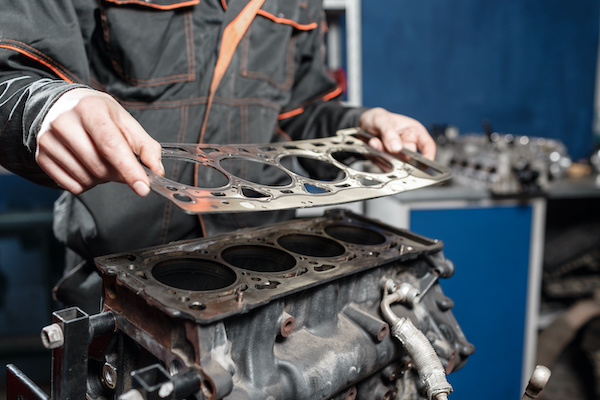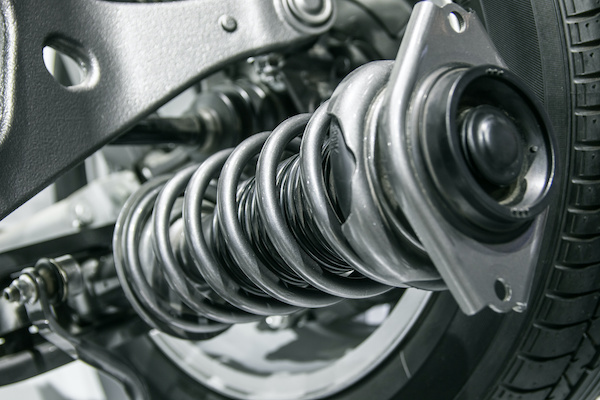Posted on 12/4/2020

Winter is an exciting moment, especially for those who love the snow, but can be a real danger for drivers. Snowy conditions lead to a string of wrecks and accidents, making it a dangerous season for travelers. With shorter daylight hours and foggy weather reducing visibility, it is risky even for experienced drivers. Unless you are a snowboarding enthusiast, snowfall is only enjoyable while indoors. Also, avoid driving where possible; it is the best way to prevent the inherent danger of driving in winter. One important rule for winter driving is determining if it's necessary. If you must drive, arrive safely with these safety tips in the snow. Make sure you have good tires Traction is a defining factor of tire grip on the road. You can consider chains or snow tires but make sure they are correctly inflated because tire pressure fluctuates with temperature change. Seek professional advice for the right setup and tire balance for your vehicle. Experts recom ... read more
Posted on 11/30/2020

During wintertime, road conditions in most places around the country become wet, snowy, and even icy. It’s of utmost importance to have a proper assessment of your tires’ condition so you can feel secure and minimize the risk of an accident when driving during the winter months. Tire Maintenance Tips You don’t have to be an auto technician to inspect your tires’ condition and provide them with proper care. Tires are easy to inspect, unlike other mechanical parts of your car. You can check them wherever you are parked. Walk around your car and see if any tires are flat or low. Check if tire tread is worn more in some areas of the tire. Check for gashes, bulges, or other objects lodge in the tire. Check for other signs of wear, like worn, cracked, or cut sidewalls. Perform a penny test on your tires once a month. Take a penny and place it in a way that Lincoln’s head is positioned in the deepest part of the tread. On each tire, check s ... read more
Posted on 10/28/2020

The head gasket is a component within your vehicle that you have mostly likely heard of, but don't quite understand. The head gasket is the block that is located between the engine block and the cylinder head, as demonstrated in the image above. This part has a hard job because it is constantly put under high pressure and blistering temperatures. If your head gasket is blown, this is another way of saying that your head gasket is leaking. A blown head gasket means that it is allowing coolant to leak out of the engine or it could mean that coolant is getting into the cylinder. When you continue to drive with a blown head gasket, the coolant and exhaust gases are going to the wrong places which can cause engine metal and parts to warp and wear down significantly. Leaking coolant through a blown head gasket can cause a multitude of different issues, including causing low coolant levels which can cause engine overheating and warping, damage your spark plugs, cause ... read more
Posted on 9/30/2020

While driving on the road, typically you can enjoy a smooth ride because of your vehicle's suspension system. Within the suspension system lives the shock absorbers and the struts, which are both important integrally and to the overall comfort of your drive. Shocks and struts endure quite a bit of force and heat with every ride, which is why they do tend to wear down over time with regular use of your vehicle. When these parts are worn, damage can start occurring to your tires and you'll notice that your ride has become much bumpier than usual. How long do shocks and struts typically last? The answer will depend on a number of factors, including the make and model of your vehicle and your own individual driving habits. However, they typically last around 30,000 to 50,000 miles. If it's been a while since you had your suspension system inspected, look out for the following symptoms: Car bounces excessively when driving over bumps or uneven surfaces Vibrating o ... read more
Posted on 8/31/2020

When your car starts to make strange noises or vibrates heavily, it’s usually never a good sign. Your vehicle is a complex working system, and when it starts to work abnormally, it’s your car’s way of telling you that something isn’t right. Certain noises can indicate specific problems depending on where they are coming from. Vibrations can stem from a number of different areas, such as a brake system or suspension system problem. Some common noises include: Squealing, screeching, or grinding when you brake Sputtering or rattling exhaust noises from under the car Chirping or squealing noise from under the hood Humming, growling or roaring noise when driving Before you bring your vehicle into our shop, it is important that you note down exactly what you are experiencing, and when. Understanding when and why your vehicle is making a strange noise or vibration will help our experts figure out where the problem is stemming from. For example, if you ... read more
Posted on 7/20/2020
.jpeg)
Modern oil changes can be confusing for some - you may be offered multiple types of oil, and maybe you aren't completely sure what the difference is between them. The main types offered include conventional oil, synthetic blend, and full synthetic. The full synthetic option tends to be the most expensive, while conventional oil is the cheapest. With full synthetic being the most expensive, the question becomes - is it worth the extra cost? The first thing we should talk about is your vehicle's needs. If you have a newer vehicle, chances are your vehicle actually requires full synthetic oil. If you check your vehicle's owner's manual, it will tell you the type of oil that your vehicle requires. This is both for the purpose of keeping a valid warranty and ensuring that your vehicle's lifespan is extended. In terms of cost, a full synthetic oil change can be between $20-$30 more expensive than a conventional oil change on average. However, the b ... read more
Posted on 6/24/2020

July 4th is a special day when it comes to celebrating our freedom here in the United States and gathering with loved ones for a good time. Many families will be coming together to BBQ, eat lavishly, and watch fireworks nearby. With the increase in vehicles on the road and the high amount of people out having a good time, it is important to remember a couple of ways in which we can stay safe during this holiday. Here are some tips on how to remain safe while celebrating July 4th this year: One important thing to remember is driving safety. With the increase of alcohol consumption on July 4th, be sure to have a safe ride to and from your destination. NEVER drink and drive, or allow an intoxicated person to drive you. Have a designated driver planned or get a ride from a rideshare app or taxi. If you can't find a way to drive without drinking, find a place nearby where you can safely walk to your destination. July 4th is one of the most dangerous days in the United Sta ... read more
Posted on 5/27/2020

Car trouble is something that nobody wants to have to deal with. Whether you find yourself stranded or a warning light appears on your dashboard, we understand the stress that comes along with getting your vehicle diagnosed and repaired. Did you know that poor vehicle maintenance is a top cause of car issues? The better you maintain your vehicle, the less money you'll spend on repairs over time. The transmission is an important vehicle component, because it is the system that helps to transfer power from the engine to the wheels. The transmission runs on many different parts and fluid, and many different issues can arise if your transmission isn't well serviced. So, how do you know if your transmission might need to be repaired? Here are some of the symptoms that can indicate transmission problems: Car won't move when placed into gear Grinding noise when shifting Clunking or whining noises coming from underneath the hood Burning smell coming fro ... read more
Posted on 4/21/2020
Have you ever been driving on the road and saw a bunch of frayed tire fragments laying about? Those are the remnants of a tire blowout. A tire blowout is a scary occurrence, because your tire literally explodes - and in severe cases, this can cause your tire to break apart on the road. Did you know that something as simple as low tire pressure is the the leading cause of a tire blowout? Tire pressure is super important, and luckily is an easy measure to keep track of it. Proper tire pressure is important for a number of different reasons - it ensures the best vehicle handling, prevents excessive and uneven tire wear, helps you avoid tire blowouts, and gives you the best fuel efficiency. Let's look at how to check your vehicle's tire pressure. First, you should know what tire pressure is correct for your vehicle. You may be able to find this located on a sticker on the inside of the driver side door. If not, open up your vehicle's owner's manual that is hiding in ... read more
Posted on 3/24/2020
With the spread of the COVID-19 virus among North Carolina, we understand the fear and uncertainty of having to distance yourself from others and take extra precautions to protect your health. While many businesses and schools are ordered to close, you still have the need to go out and purchase essential goods so that your family can eat and function. This is why is it so important not to forget about sanitizing your vehicle. We advise you to keep hand sanitizer in your vehicle at all times. That way you can sanitize your hands as soon as you get into your vehicle. You should also be sure to use sanitizing wipes to wipe down all of the surfaces that you touch when in your vehicle. This includes the middle console controls such as the a/c and heating controls, radio, air vents, and shifter. Also, don't forget your steering wheel and door handles, both inside and outside. Auto repair is considered an essential service, and therefore Pete's Auto Service in Charlotte ... read more